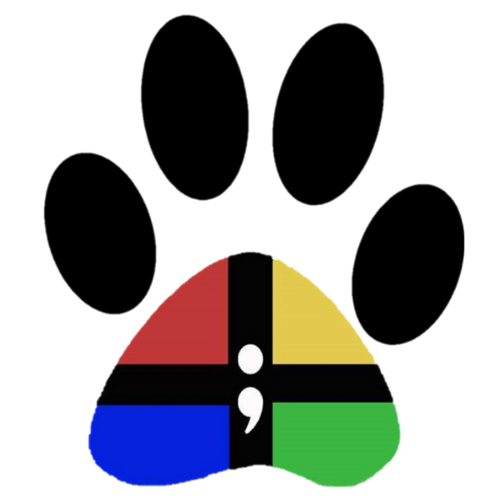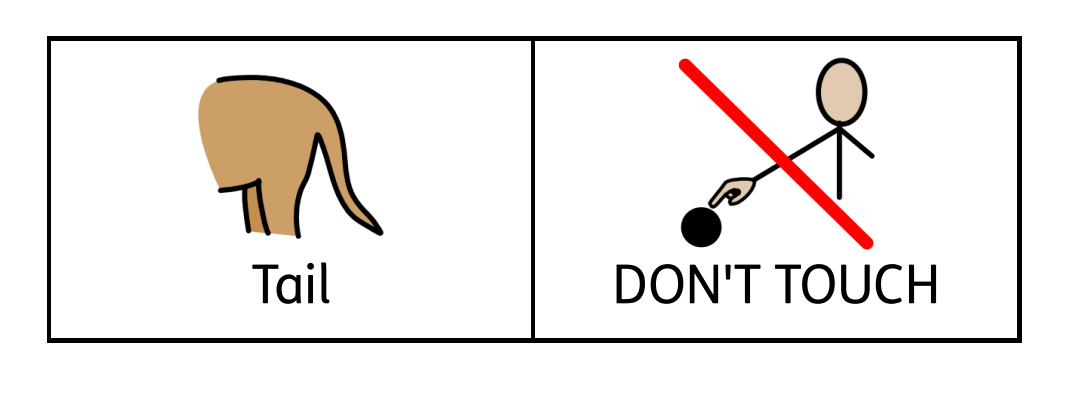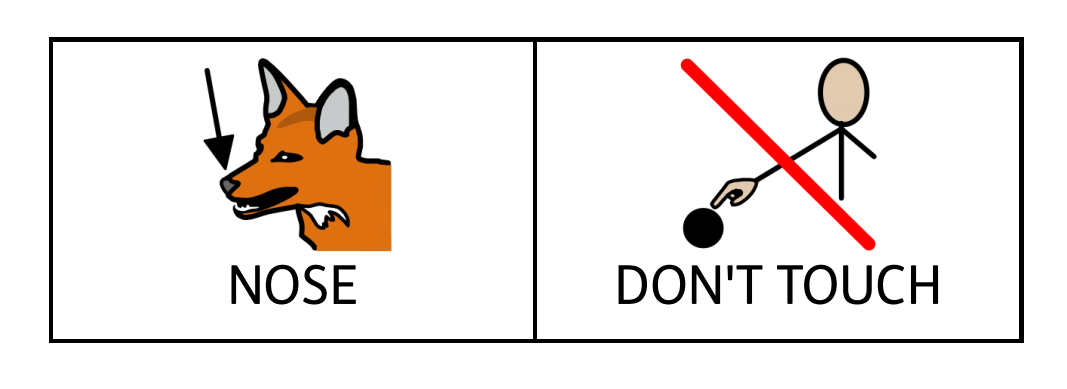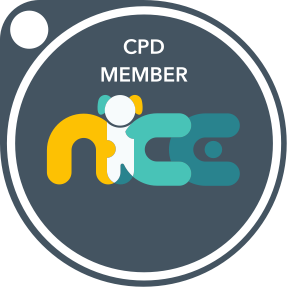Pawsitive Squad CICEnabling independence, therapy and learning |
|
Our site includes detailed information, which can feel overwhelming for some users. We’ve added short summaries on each public page to support accessibility. If you need any support, please contact us via WhatsApp (audio/video messages only) at 07548 825 101 or email at enquiries@pawsitivesquad.co.uk.
Pawsitive Squad Welfare Standards
Here at Pawsitive Squad CIC, we pride ourselves on having exceptional welfare standards for everyone that accesses our organisation, both dogs and humans. All dog owning clients receive canine welfare training and all canine assessments include a welfare assessment.
Child/ Young Person Welfare
As part of our commitment to ensure the welfare of people accessing our programs we have virtual support volunteers who are able to provide individually tailored support to enable the clients to get as much as possible out of the program as possible. We have strict rules on what assistance, therapy and therapeutic pets can be trained to do in relation to young person welfare at Pawsitive Squad. These include: 1. Clients are not permitted to receive conformity based therapies such as ABA when access any of our programs. We know that the greatest experts on disability and neurodiversity are people with lived experience. We have listened to neurodiversity voices who have experienced conformity based therapies such as ABA which have been abusive and detrimental to the individual. Looking at many of the techniques used within ABA & compliance based therapies, many of the techniques used are techniques which are used to train dogs BUT not within our organisation. We don't even use these conformity based techniques with dogs because we know it harms their welfare and we are not going to have lower welfare standards for the humans we work with than the dogs! AND we certainly don't want to be teaching young people they need to change who they are to fit in by assessing and adapting who they are to fit in to a social group (when research shows that fitting in is the opposite of belonging). For these reasons, clients cannot be in conformity based therapies when accessing our program. To evidence this we require each therapist working with the young person as well as the parents to sign a declaration that they do not use conformity based therapy techniques with the young person. 2.Ban on tethering If you’ve seen pictures of autism assistance dogs you’ve probably seen a child with a lead tied round their waist which is attached to the dog. This is tethering. Tethering is really popular with assistance dogs and children but it’s banned at Pawsitive Squad because it is dangerous and potentially mentally detrimental to children and young people for multiple reasons including:
3. Nothing about us, without us policy So often, young people are excluded in making decisions about their lives and their opinions and feelings go unnoticed, under valued and not represented. We regularly run projects to gain better insight into the lives of the children and young people who access our service, what's important to them and where they would like us to change. We use accessible techniques to enable as many young people to participate as possible including photo voice projects using cameras to capture what they want to share rather than written feedback which is less accessible. older clients 13+ also are invited to have access to their private virtual area so they can see all records we keep on them and their dog (with the exception of course of any information which is deemed to be harmful to the young person if they were to be aware of it such as some types of safeguarding concerns). 4. Dog and child safety training The household receive training in how to stay safe around their dog, respecting the dogs boundaries, reading and appropriately responding to the dogs emotions. All dogs can and will bite if pushed to. With over 1000 children under 10 hospitalised a year with dog induced injuries, most often from the families own pet, this interactive education is vital to minimise any health, safety or welfare risk the dog may pose to the child. To ensure the young people get the most possible out of this safety training we use PECS, visual and auditory as well as interactive resources. |
|
Dog Welfare
At Pawsitive Squad we are incredibly proud to have very high canine welfare standards. We never compromise the health & welfare of the dogs for the benefit of the young person.
1. Ban on aversive techniques & equipment including 'balanced' training
Research shows that, not only are aversive training techniques less effective but they are also psychologically and often physically damaging to dogs. If you want your dog to behave and listen to you out of fear then you should not own a dog. This means we do not use techniques such as pinning down, intimidation or dominance & hierarchy based techniques (which are based on debunked, outdated research into wolves which we know is false and not how dogs, or even wolves behave) as well as not using equipment such as choke chains, prong collars etc which we know cause pain and discomfort to dogs.
2. Strict restrictions on head collars
The latest research shows that head collars cause increased anxiety for some dogs (measured by using temperature within the research). The positioning of the head collar on the nose means that any pressure from the head collar is on a highly sensitive area of the dog, where there are loads of nerves and very fat protection to absorb any pressure, making head collars aversive if they're used with any pressure. Most dogs who walk nicer without training in a head collar, will do so because they're trying to avoid the pain & discomfort on their nose which occurs when they pull. Head collars also restrict on pant room which restricts the dogs ability to cool themselves down. In 2020, A research project at Myerscough College into the welfare of head collars which looked at the gentle leader, dogmatic and Halti found that head collars increased stress behaviours. Prior to this, head collars were, and still are, widely used by positive trainers and we had used head collars with clients. Since this research was publicly shared in 2020 we have, as an organisation which focuses on evidence based practices, stopped any of our dogs starting to use head collars and banned them for new clients immediately UNLESS required as a short term intervention for the safety or dog and handler where the handlers disability and dogs behaviour while in training mean the handler can't safely handle the dog. For clients who have already trained their dogs using head collars, the use of the head collars is being weaned as much as possible and we have assessed that, as we always did, these specific dogs are not showing stress signs at the use of the head collar and that the head collars are only being used on dogs who do not pull but where the head collar was used as a back up for individuals with physical/ strength difficulties.
4. Canine welfare training for all
To ensure the dogs are treated in a welfare friendly way, all clients receive welfare & emotion training through our virtual learning zone.
5. No kennel policy
Kennels are hugely stressful for dogs, especially those who are used to live within a family home with constant human connection so we have a no kennel policy, this means that dogs cannot be kept in a kennel at all within the grounds of their house OR within business kennels at any point. If the dog owner must go somewhere within the dog, where possible a dog sitter must stay at the dogs house to change their environment and routine as little as possible, if this is not possible the dog has to be looked after by a dog sitter in the dog sitters own house.
6. Canine Anxiety & Welfare Assessment
We have created an objective assessment tool which all our dogs are assessed against to ensure the dogs have high standards of welfare. To pass each assessment clients must score below a certain quantity of point on the CAWA to pass that level. For every welfare or anxiety (of course anxiety impacts on welfare) point observed the team receive a point from 1 for mild concerns/issues to 3 for major concerns/issues. All assistance dogs must have under 5 points and NO score 3's for major concerns to pass their final assessment. The CAWA includes issues such as forgetting to bring water bottle, taking the dog out in high temperatures, poor grooming, lead corrections (tugs on the lead) and any signs of fear from the dog.

.png)
.png)
.png)
.png)
.png)





